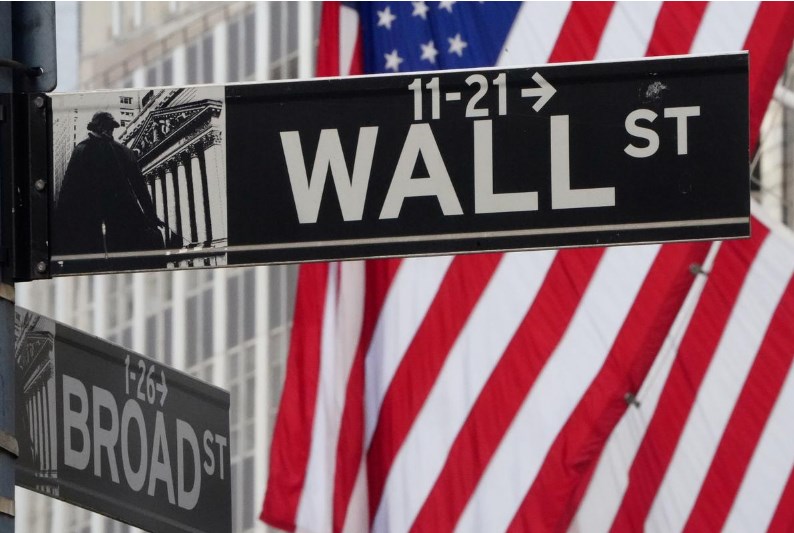(Bloomberg) -- Tesla (NASDAQ:TSLA) Inc.’s $1.5 billion Bitcoin purchase this week sent the cryptocurrency soaring to a record, with many of its most vocal adherents feeling validated in their “to the moon” predictions. For the largest U.S. banks, prospects for the digital asset are decidedly more earthbound.
Top lenders still mostly shy away from crypto. While futures contracts based on Bitcoin and Ether, the second-largest digital currency, are available at major exchanges, none of the six biggest U.S. banks offer their customers access.
Their reticence should come as no surprise: Banks weren’t invited to the crypto party in the first place.
“A purely peer-to-peer version of electronic cash would allow online payments to be sent directly from one party to another without going through a financial institution,” Satoshi Nakamoto, a pseudonym for the person or people who developed Bitcoin, wrote in the 2008 white paper that helped lay the groundwork for the digital asset.
There are other reasons banks are still mostly on the sidelines. While Bitcoin is now more than 11 years old, there are very few things it can actually buy. And volatility is a major risk, as even Tesla said in a filing disclosing its purchase.
Here is crypto’s state of play at the top U.S. banks:
JPMorgan
JPMorgan Chase & Co. (NYSE:JPM), the biggest U.S. bank, is the furthest along.
The firm last year agreed to take on Bitcoin exchanges Coinbase Inc. and Gemini Trust Co. as banking clients, breaking with an industry that had routinely forbidden Bitcoin businesses from accessing its services. The decision was meant to help virtual exchanges manage cash in the U.S., but the New York-based bank still won’t be handling any cryptocurrency transactions.
It was nevertheless quite a turnaround from 2017, when Chief Executive Officer Jamie Dimon famously called Bitcoin a “fraud” and threatened to fire any employee caught trading it. He later said he regretted the comments, and now says he sees many ways the bank can use blockchain technology. Here’s one: In 2019, JPMorgan turned to crypto to help speed up corporate payments using a token dubbed JPM Coin.
In December, JPMorgan said it was using its custom blockchain to conduct intraday repurchase agreements totaling billions of dollars, an advance that helped persuade Goldman Sachs Group Inc (NYSE:GS). to join the new digital market earlier this year. JPMorgan was also a founding member of the Enterprise Ethereum Alliance, a group experimenting with a private version of blockchain.
Goldman Sachs
Three years ago, Goldman Sachs hired a crypto trader to help lead digital-asset markets, with a goal of familiarizing people in the company and as well as clients with cryptocurrencies. The firm has previously mulled whether it needs to start a trading desk to make markets in digital currencies.
More recently, Goldman Sachs has played down the idea of Bitcoin as an asset class, saying wild swings in its price prove it’s not a real unit of value. At the same time, the firm has been exploring the creation of its own fiat digital token, but has said it’s very early in the process.
Morgan Stanley (NYSE:MS)
Morgan Stanley CEO James Gorman was one of the first Wall Street leaders to lend credence to Bitcoin, saying in 2017 that it was more than just a fad. The firm flirted with the idea of trading a swap-based product tied to the cryptocurrency that could give clients synthetic exposure to the coin, but it ultimately didn’t proceed.
Morgan Stanley’s head of digital-asset markets, Andrew Peel, has said in recent months the bank has fielded more interest in Bitcoin from traditional financial firms.
Wells Fargo (NYSE:WFC)
Wells Fargo & Co. doesn’t accept crypto assets in deposit, custodial or other accounts, according to company spokesperson Roger Cabrera. The firm is, however, conducting research to “evaluate the underlying technology for potential transactional, transparency and settlement innovations it may hold,” Cabrera said.
The San Francisco-based company announced in 2019 that it was piloting Wells Fargo Digital Cash as a bank-issued alternative to cryptocurrency. Wells Fargo said at the time that the internal settlement service would run on its first distributed-ledger technology platform and allow internal book transfers of cross-border payments using digitized cash.
CEO Charlie Scharf has been mum on the issue since taking over in 2019, but while running Visa Inc (NYSE:V). in 2014 he called Bitcoin “far more complex” than it’s often portrayed.
Citigroup
Citigroup Inc (NYSE:C).’s outgoing CEO, Michael Corbat, said in an interview with Bloomberg in December that he believed some cryptocurrencies would continue to be used as different forms of payment, adding that his bank had begun working with governments around the world to make sovereign digital currencies.
Bank of America
Bank of America Corp (NYSE:BAC).’s chief operations and technology officer, Cathy Bessant, said in 2019 that the use of Bitcoin and other digital assets was “troubling,” and that she was “bearish” on blockchain despite the lender having about 90 patents in distributed-ledger technology. “If blockchain or DLT becomes a reality, we want to be ready for our clients,” she said in an interview on CNBC at the time.
Bessant said she was “trying to throw down the gauntlet” for blockchain uses, but so far hadn’t seen anything that signaled the bank would be dependent on the technology in 10 years.
Payment Companies
Some of the biggest strides have come from financial-technology giants such as PayPal Holdings Inc (NASDAQ:PYPL). and Visa.
PayPal last year started allowing consumers to buy, sell and hold cryptocurrencies in their PayPal wallets -- a feature it plans to add to its Venmo app in coming months. The company will also soon allow customers to use cryptocurrencies to pay for a purchase at the 29 million merchants where PayPal is accepted.
Visa has said that if a digital currency becomes a recognized means of exchange, there would be no reason why the firm wouldn’t add it to its network, which already supports 160 currencies.
Looking Ahead
While Wall Street is still mostly on the sidelines, crypto could become too good to ignore if the “to the moon” crowd’s highest hopes become reality. Tesla’s $1.5 billion purchase would be worth $5.5 billion in a year based on Bitcoin’s one-year return of about 365%, or $18 billion in two years if it repeats its roughly 1,200% gain for that period.
©2021 Bloomberg L.P.

